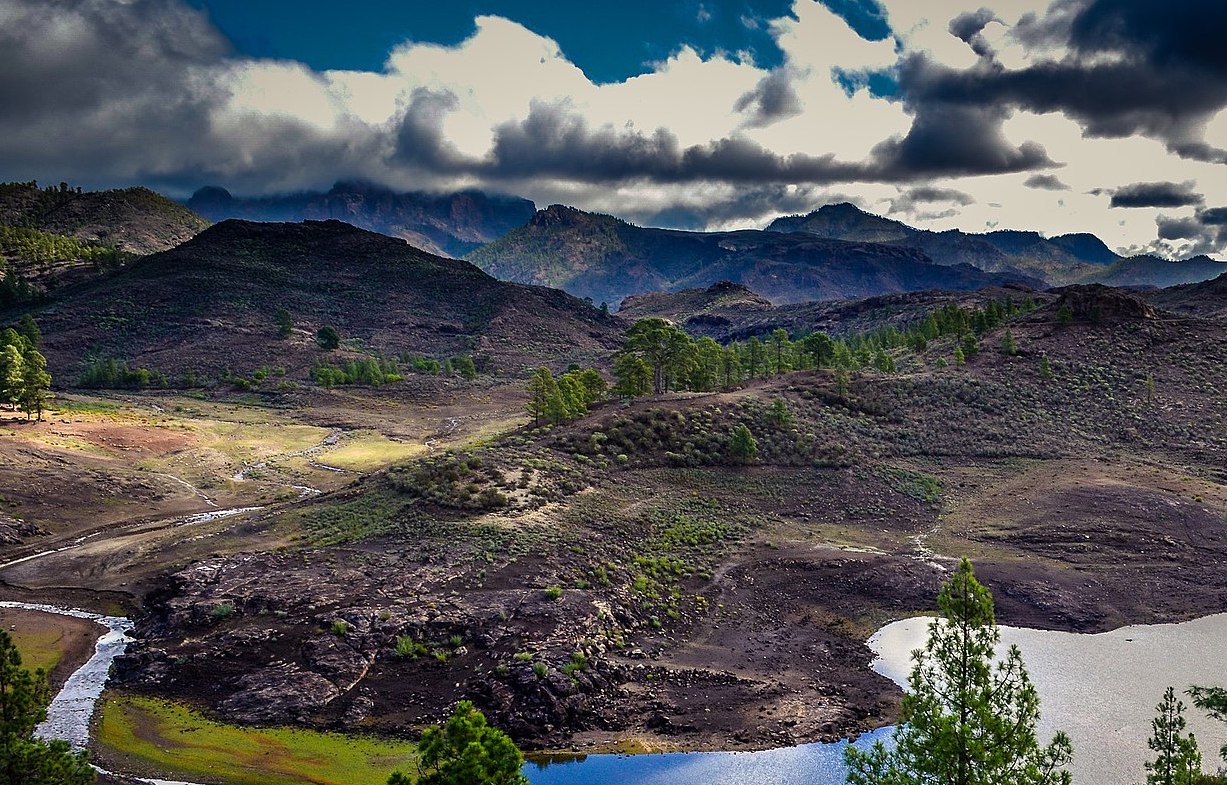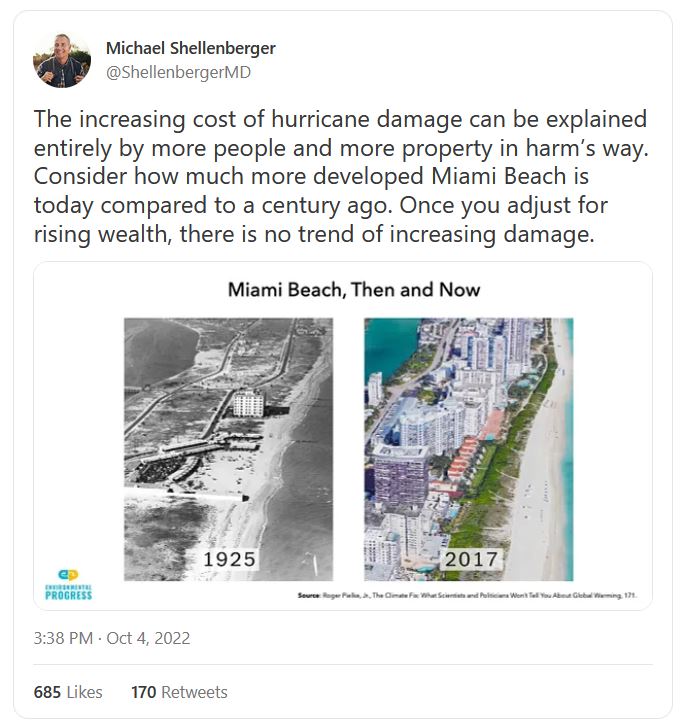Originally published: October 14, 2024
Myth: Hurricanes Helene and Milton show that we’re experiencing unprecedented danger from extreme weather thanks to fossil fuels.
Truth: Fossil fuels have made us much safer from extreme weather—and the recent hurricanes would’ve been far worse without them.
Truth: We’re experiencing unprecedented safety from extreme weather.
-
Media reports would lead us to believe that hurricanes like Helene and Milton are proof that fossil-fueled “climate change” is making extreme weather much more dangerous by virtue of being more intense and/or frequent. Mainstream data and climate science show otherwise.
-
Myth: We’re experiencing unprecedented danger from extreme weather.
Truth: We’re experiencing unprecedented safety from extreme weather, including a huge drop in extreme weather deaths in recent decades. All media reports on extreme weather should acknowledge this, yet none do.
-
You wouldn’t know it from typical media coverage, but we are far safer from extreme weather like Milton in today’s fossil-fueled world compared to the past. Climate-related disaster deaths, i.e. extreme weather deaths, are down 98% over the last century!1
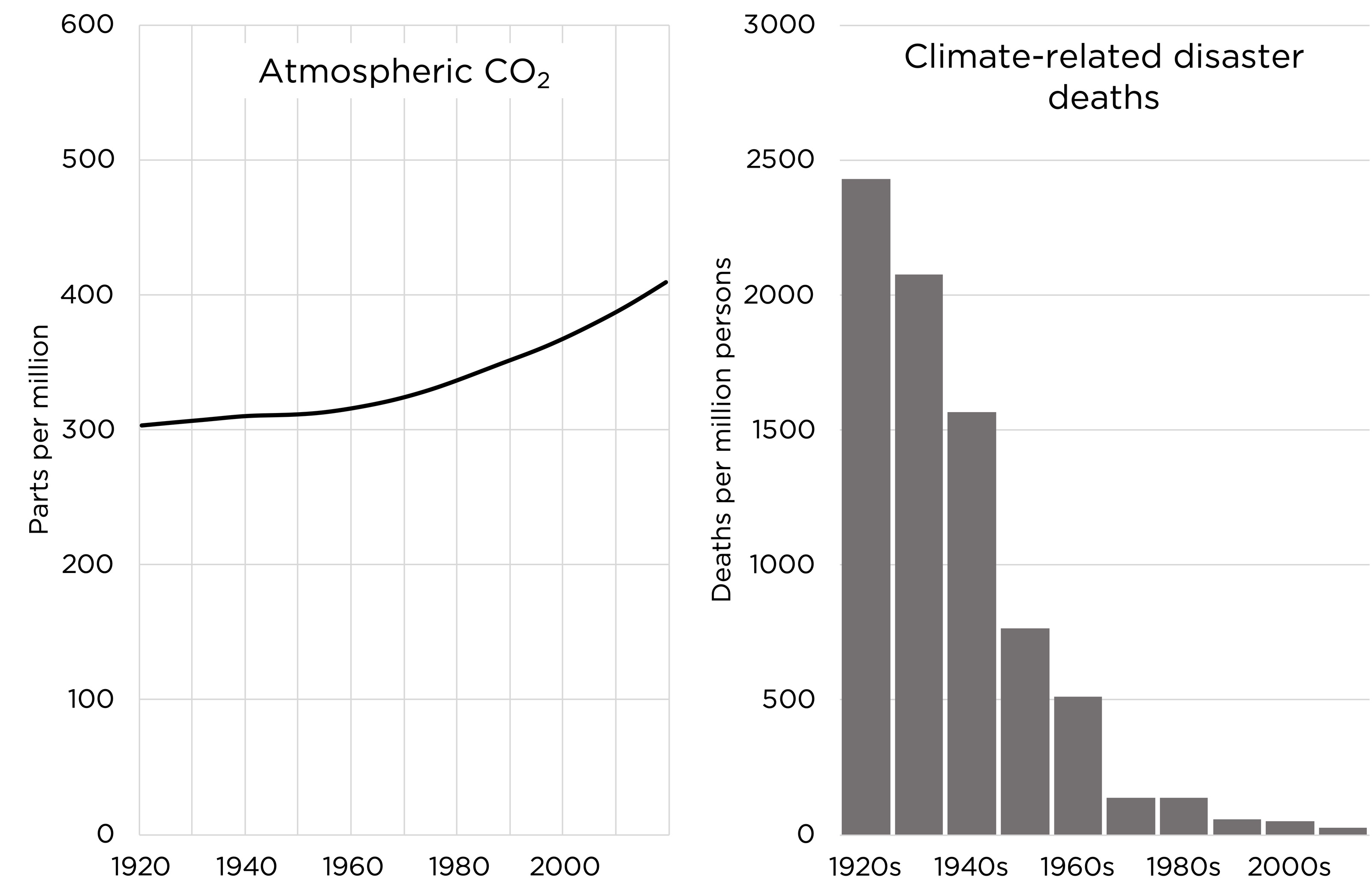
-
Myth: Extreme weather deaths may have decreased, but damages have increased.
Truth: Despite many incentives for global climate-related damages to go up—preferences for riskier areas, government bailouts—GDP-adjusted climate-related damages are flat.2
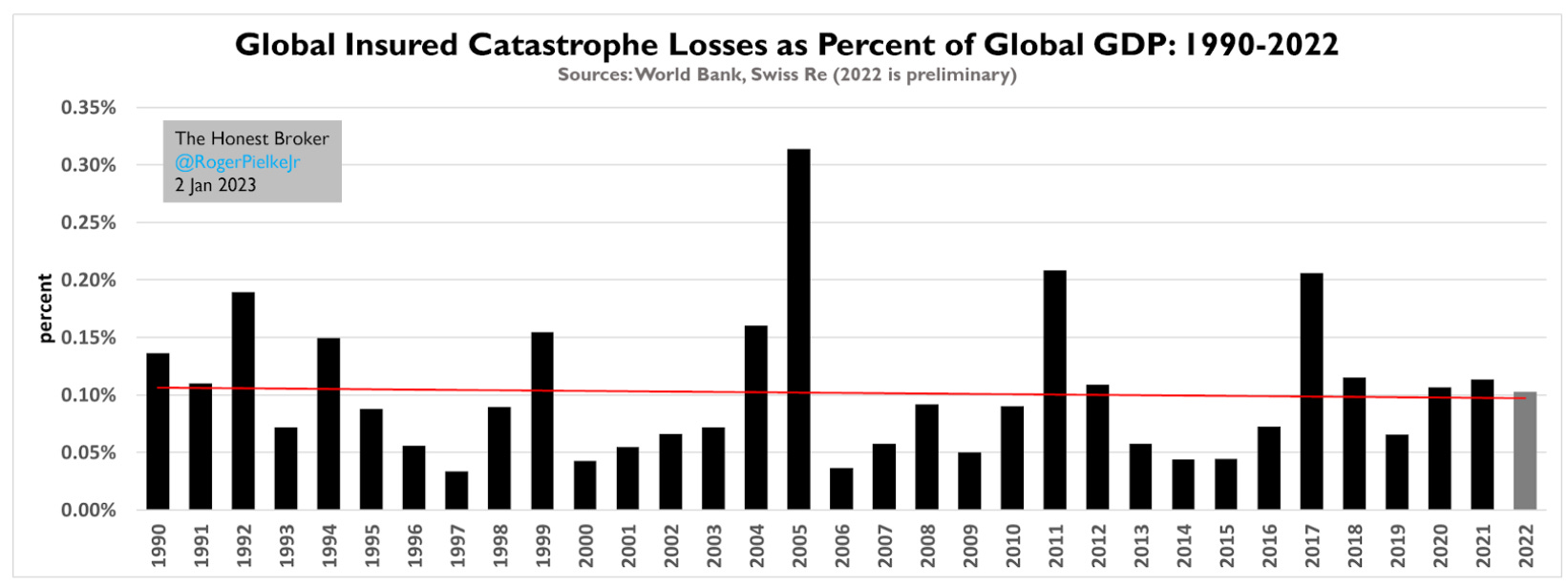
-
3 keys to understanding climate damage statistics:
1) Damage should be measured as percentage of GDP not compared dollar-for-dollar to a poorer past with less wealth at risk. (E.g., Miami Beach)
2) More people today choose to live in damage-prone areas.
3) Government bailout policies increase damage. -
Myth: The damage of Milton shows how destructive today’s climate has become.
Truth: The damage of Milton shows how wealthy and populated Florida has become.3
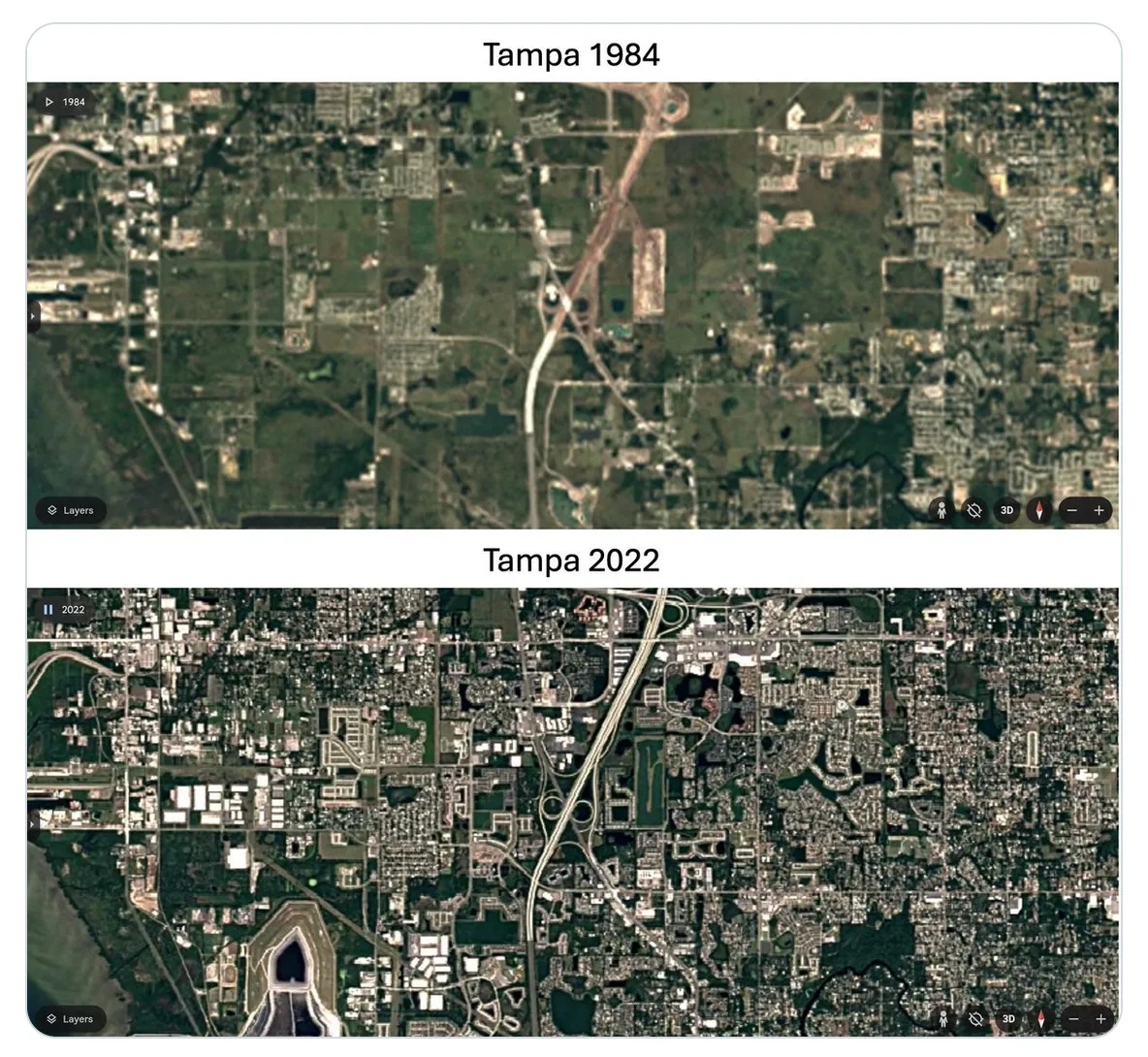
Fossil fuels have driven our record safety from extreme weather.
-
Myth: Fossil fuels shouldn’t get credit for our incredible resilience to extreme weather, only blame for making weather worse.
Truth: There’s definitive proof that fossil fuels drive our resilience to extreme weather, while there’s little evidence they’re making weather worse.
-
Myth: Storms are a bigger danger than ever thanks to fossil fuels.
Truth: Storms are a smaller danger than ever thanks to the fossil-fueled machines that build sturdy buildings, as well as fossil-fueled weather warning systems and fossil-fueled disaster relief efforts.4
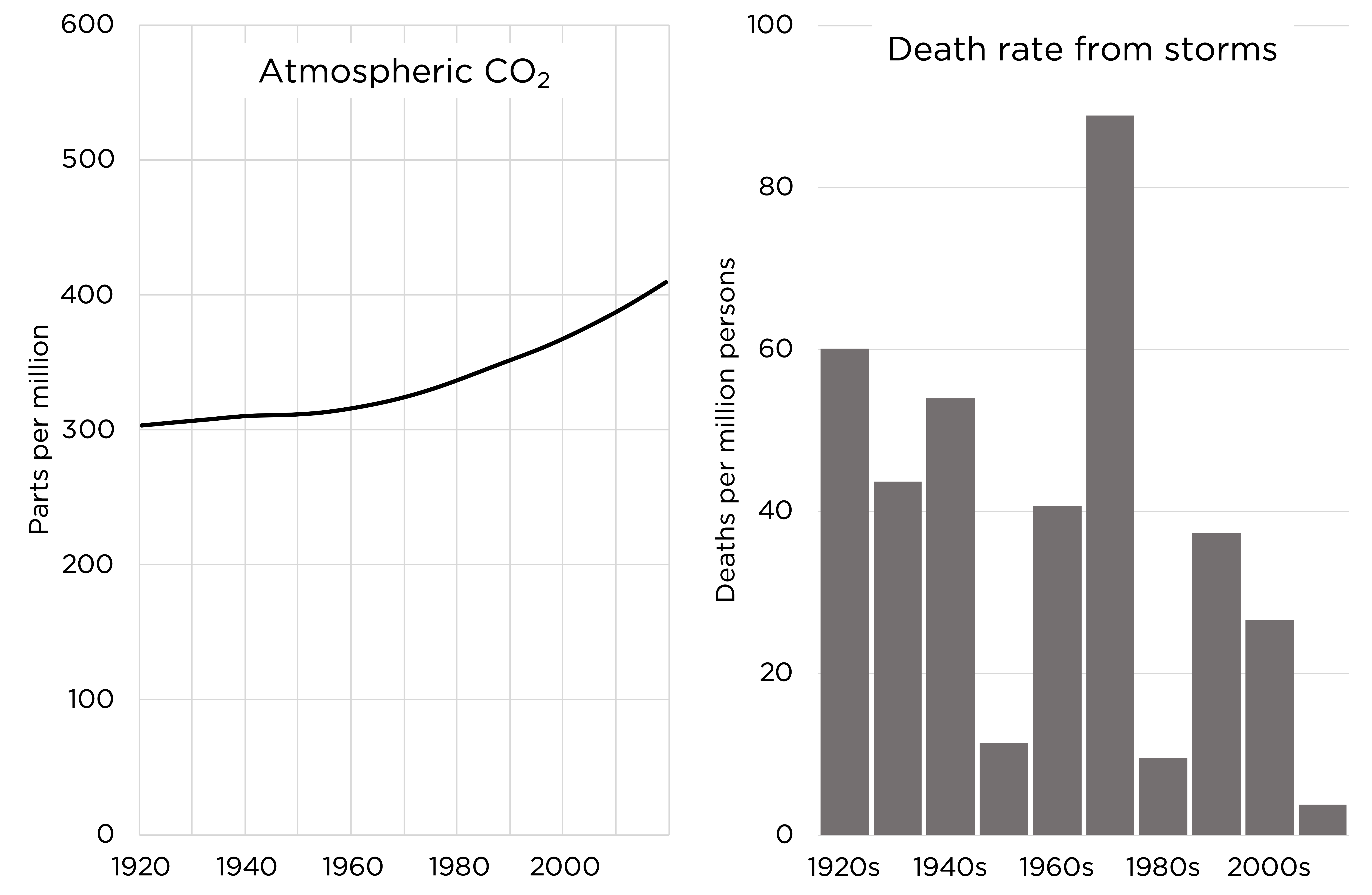
-
Myth: Floods are a bigger danger than ever thanks to fossil fuels.
Truth: Floods are a smaller danger than ever thanks to fossil-fueled flood control infrastructure and disaster relief.5
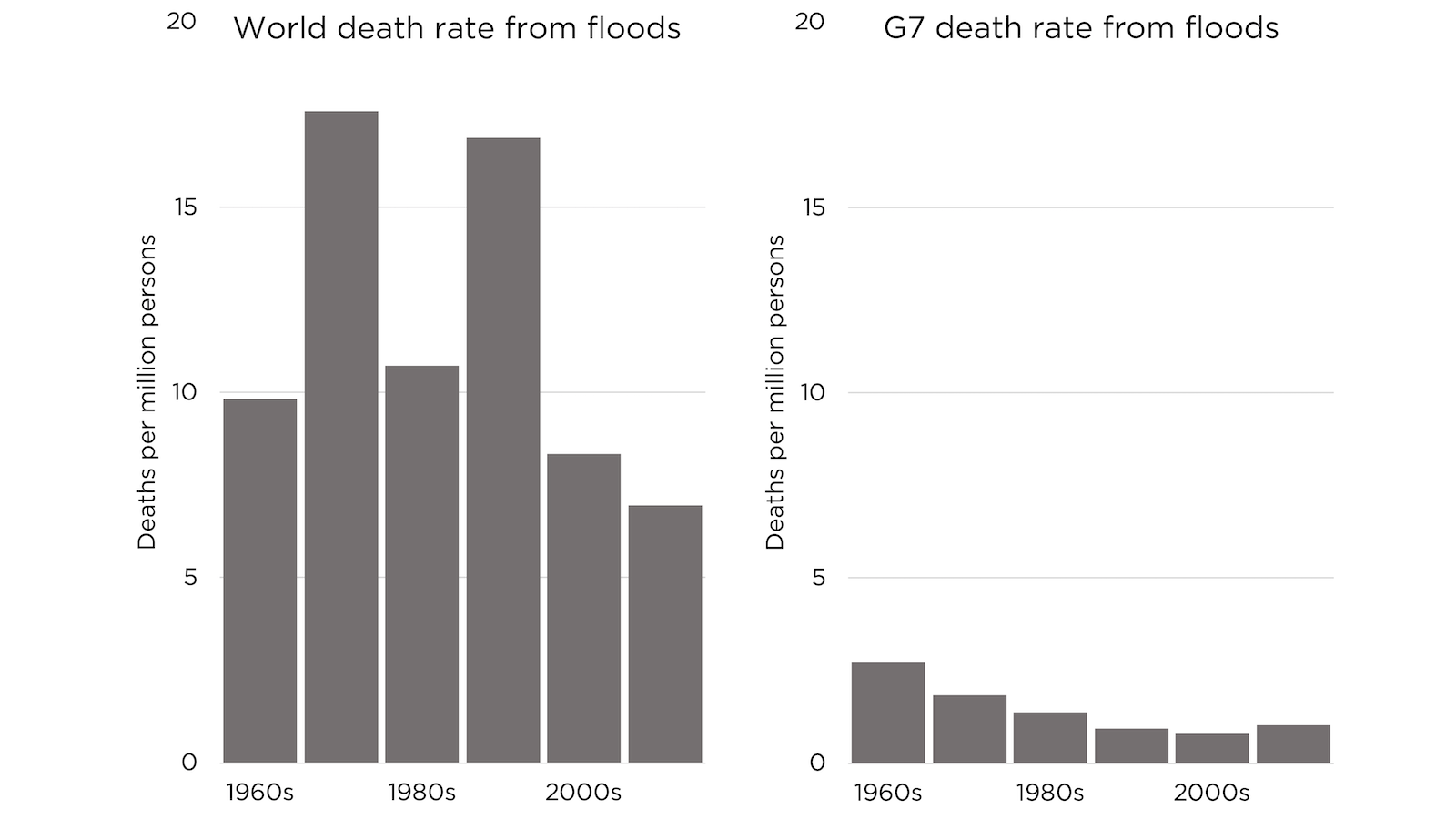
-
Myth: Fossil fuels don’t deserve much credit for plummeting climate disaster deaths; it’s “resilience.”
Truth: Fossil fuel energy makes us resilient through plentiful infrastructure-building, heating and cooling, irrigation, transportation, etc.
-
Myth: We don’t need fossil fuels to protect ourselves from extreme weather—we can just use alternatives.
Truth: There is no near-term replacement for fossil fuels for the 1/4 of the world that uses abundant energy—let alone the 3/4 of the world that doesn’t.
-
Fossil fuels will for decades remain uniquely able to provide low-cost, reliable energy to billions. That’s why fossil fuels are 80% of world energy and still growing.6
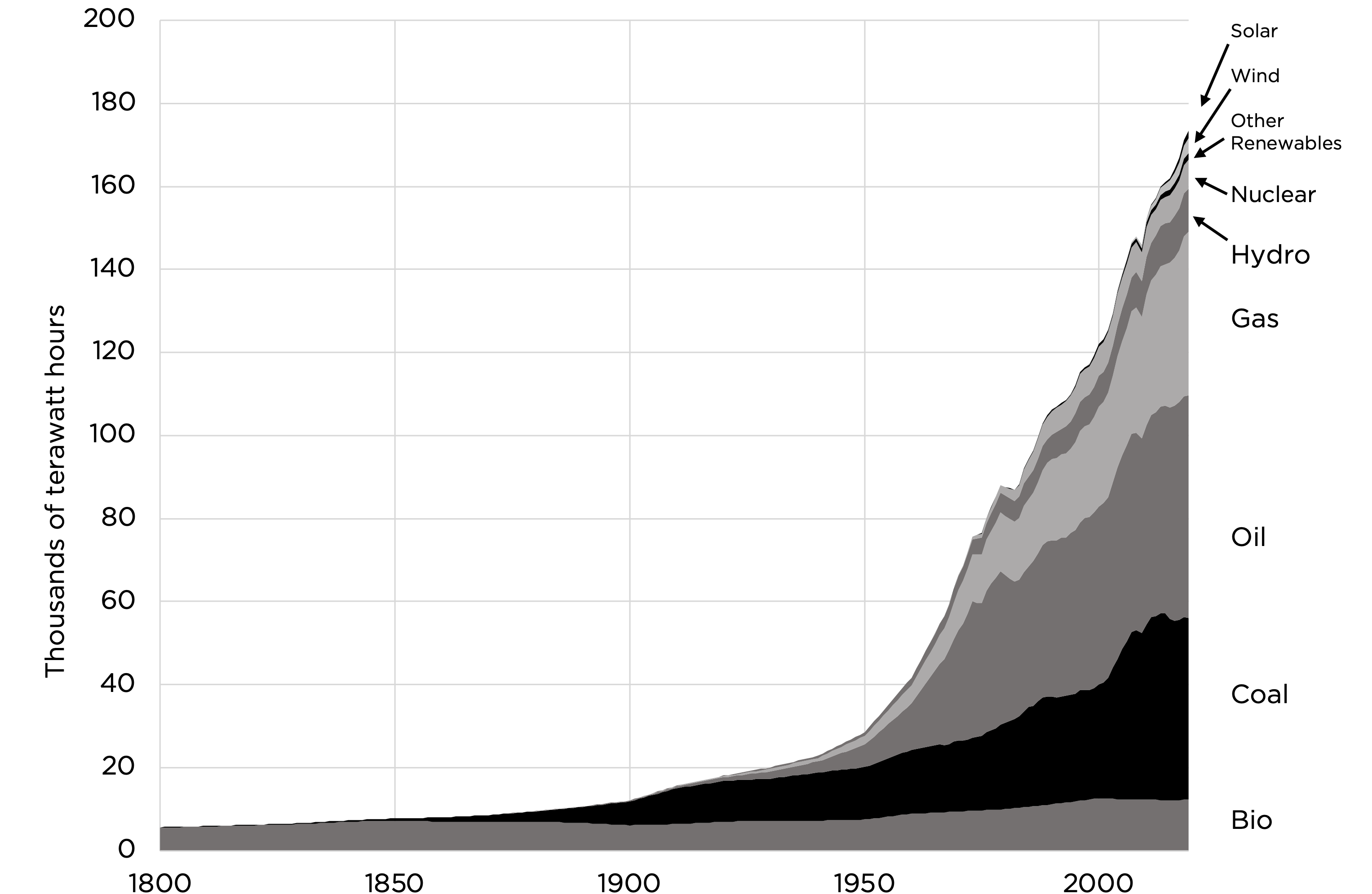
-
An example of fossil fuels’ unique ability to power climate resilience:
During the cold week that overwhelmed Texas’s solar-&-wind-favoring grid, causing blackouts, the weatherized coal-and-gas infrastructure in Alberta, Canada kept the power on in far colder temperatures.7
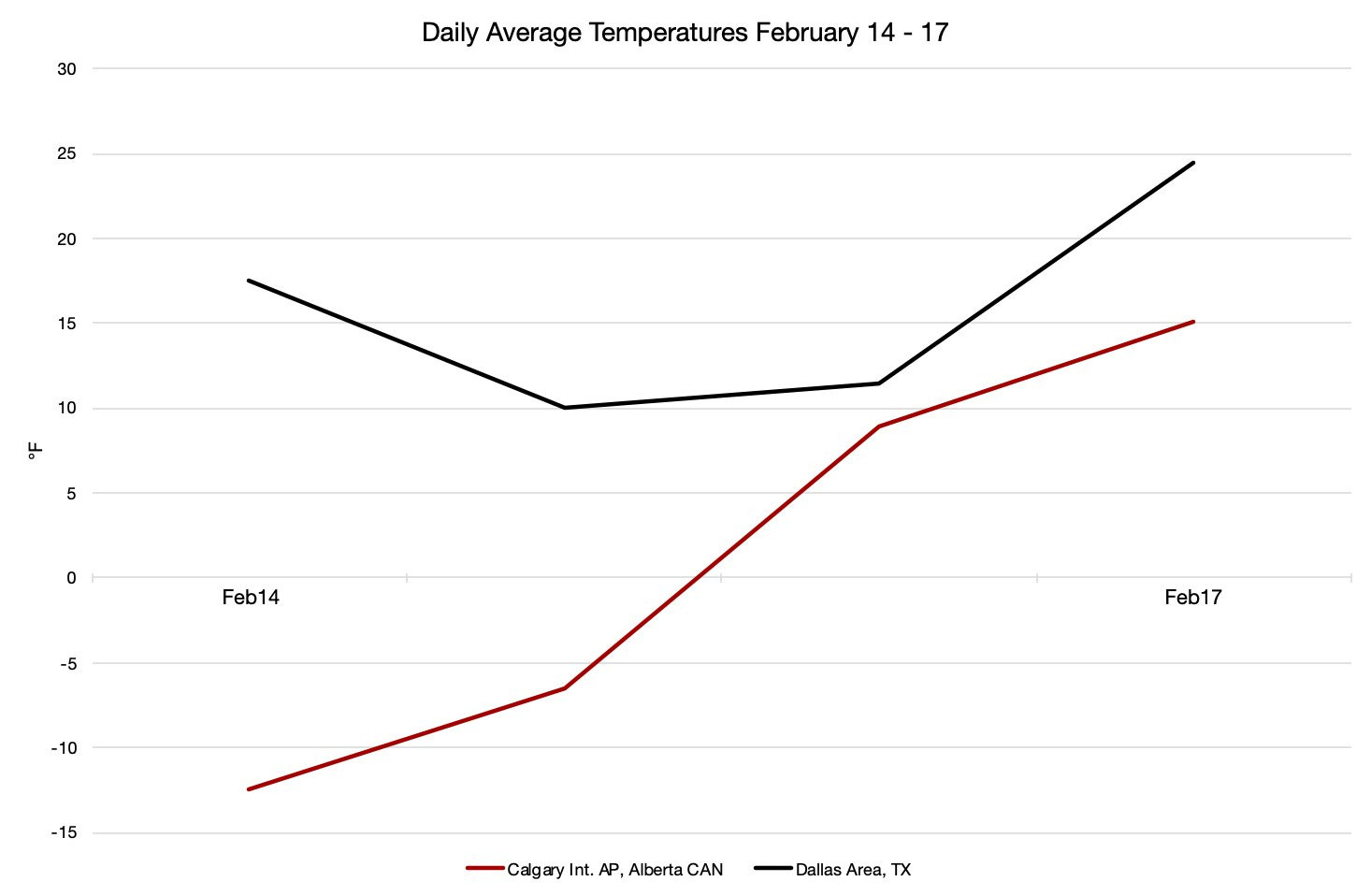
-
Myth: The rich, fossil-fueled world has ruined the poor world by making it vulnerable to extreme weather.
Truth: Fossil fuels have made everyone more prosperous and less vulnerable to extreme weather.
To be even better off the poor world needs more fossil fuels!8
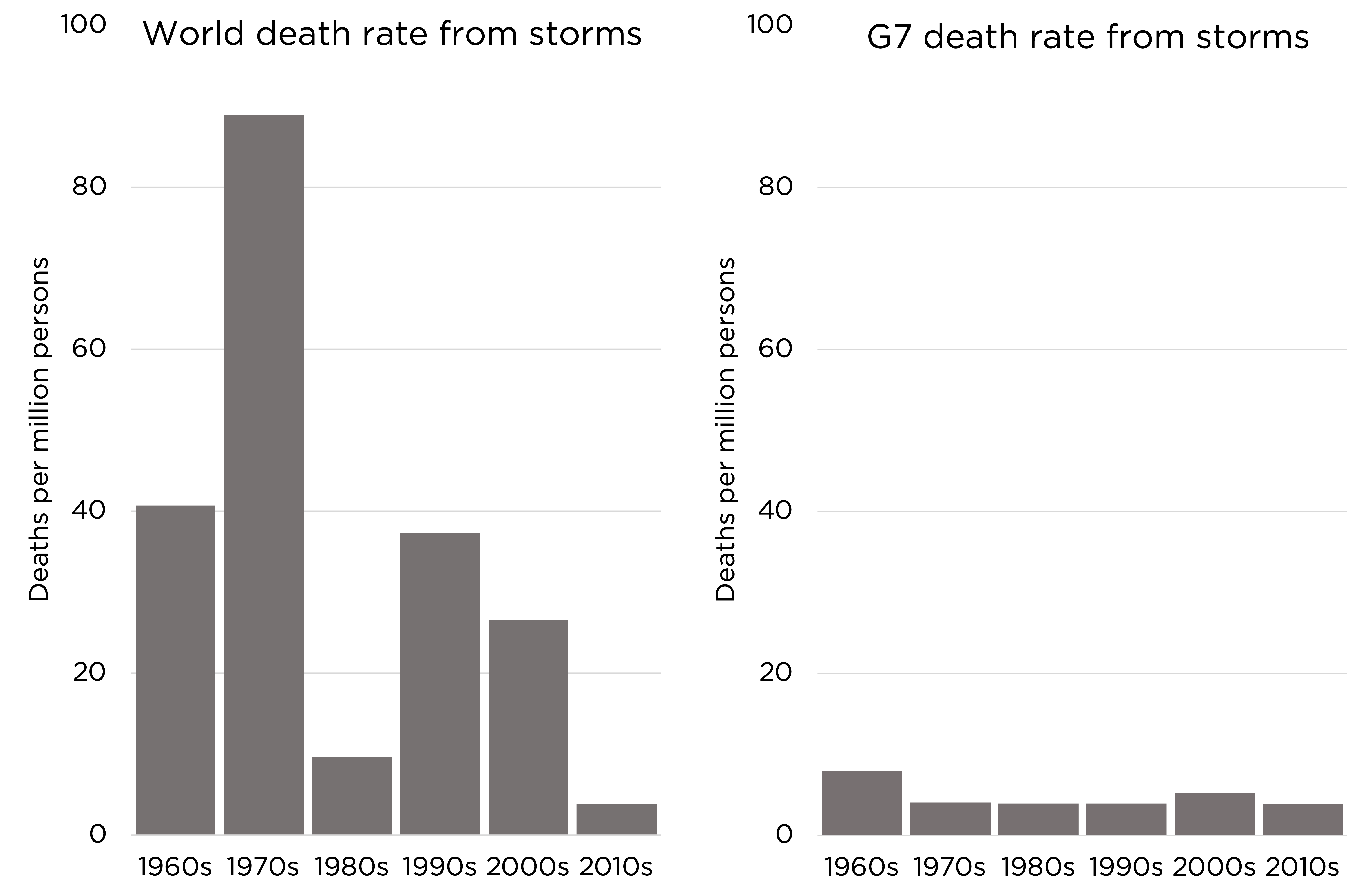
Truth: Fossil fuels have not had a significant impact on extreme weather.
-
While there’s overwhelming evidence that fossil fuels have made billions of people much safer from the impacts of extreme weather, mainstream climate science provides little evidence that fossil fuels have made extreme weather significantly worse.
-
Myth: Fossil fueled “climate change” has made storms much worse.
Truth: Mainstream climate science does not indicate any alarming trends in the frequency or total energy of hurricanes and tropical cyclones, which are the typical metrics used to assess their potential danger.9
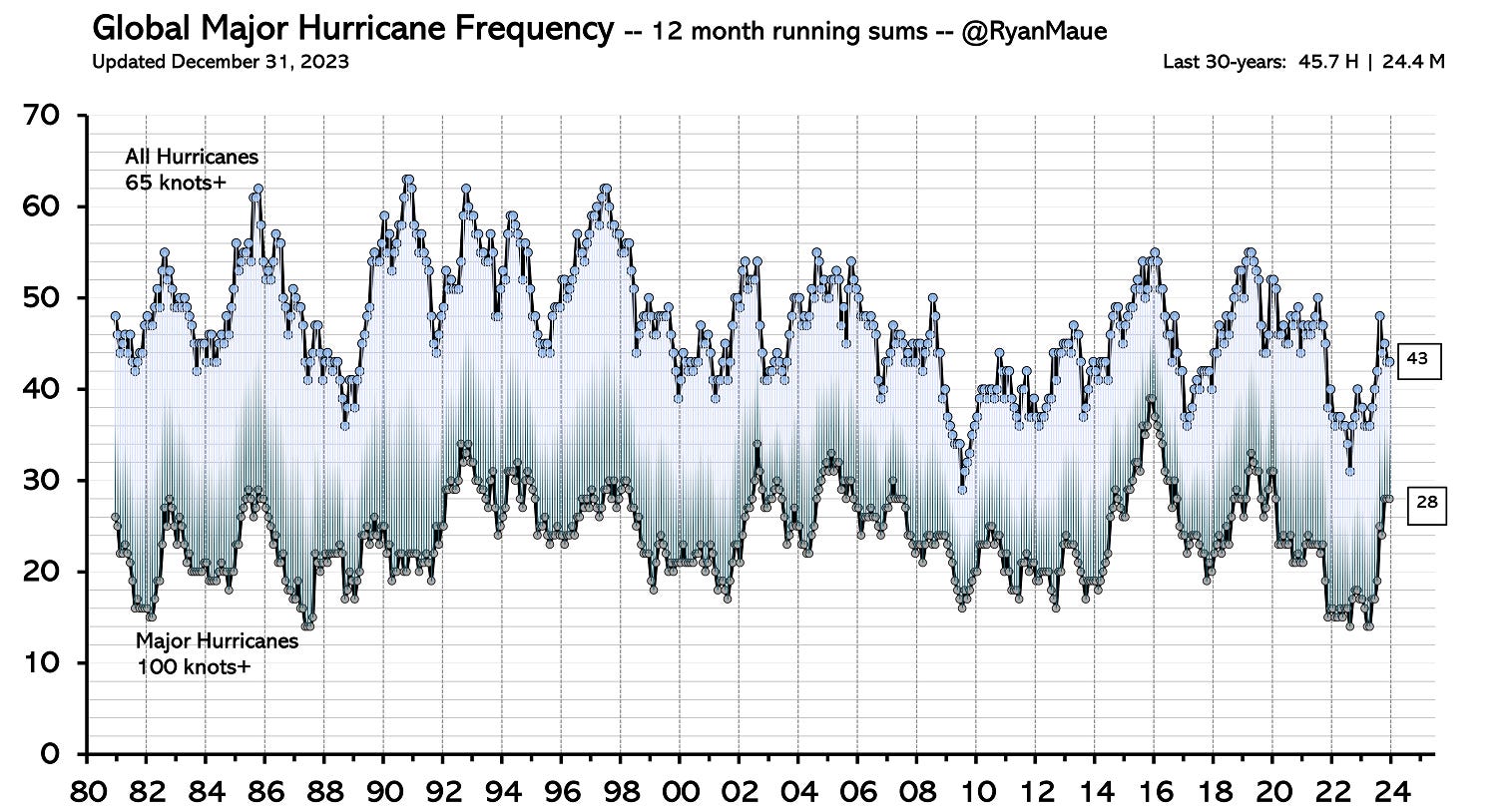
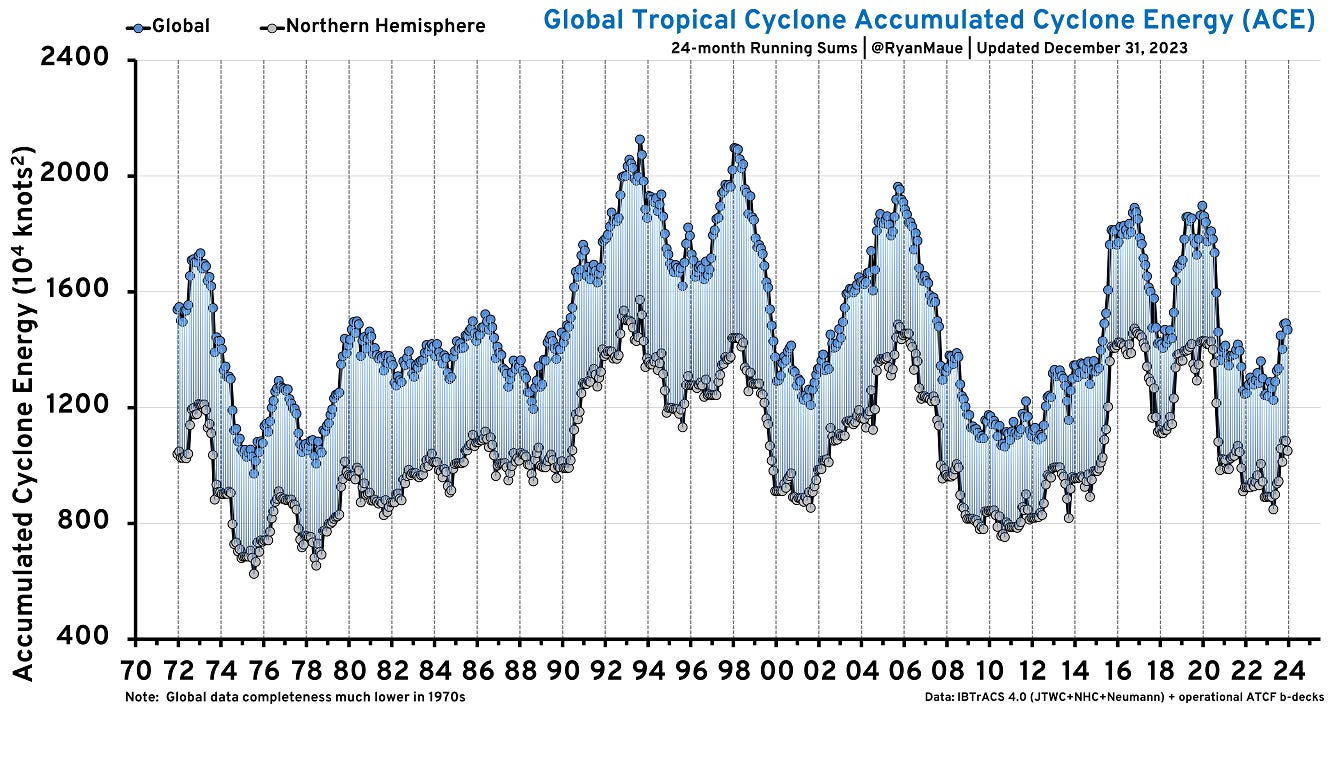
-
Myth: Media claims about increasing hurricane frequency are accurate.
Truth: Leading media outlets have deliberately misrepresented the flat long-term hurricane trend. E.g., the New York Times cherry-picking a starting point—the low point of 1980—to make a flat trend seem upward.10
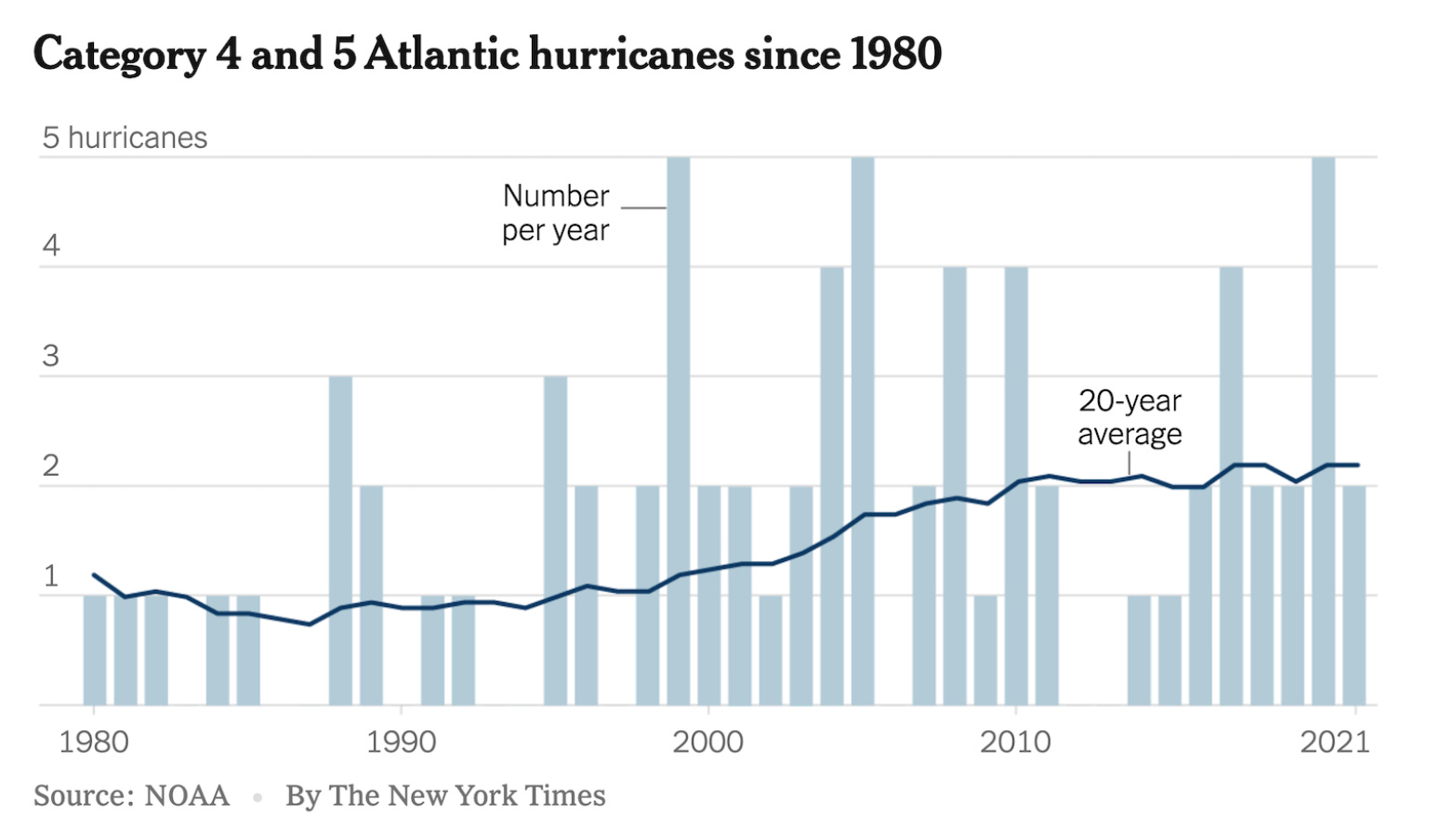
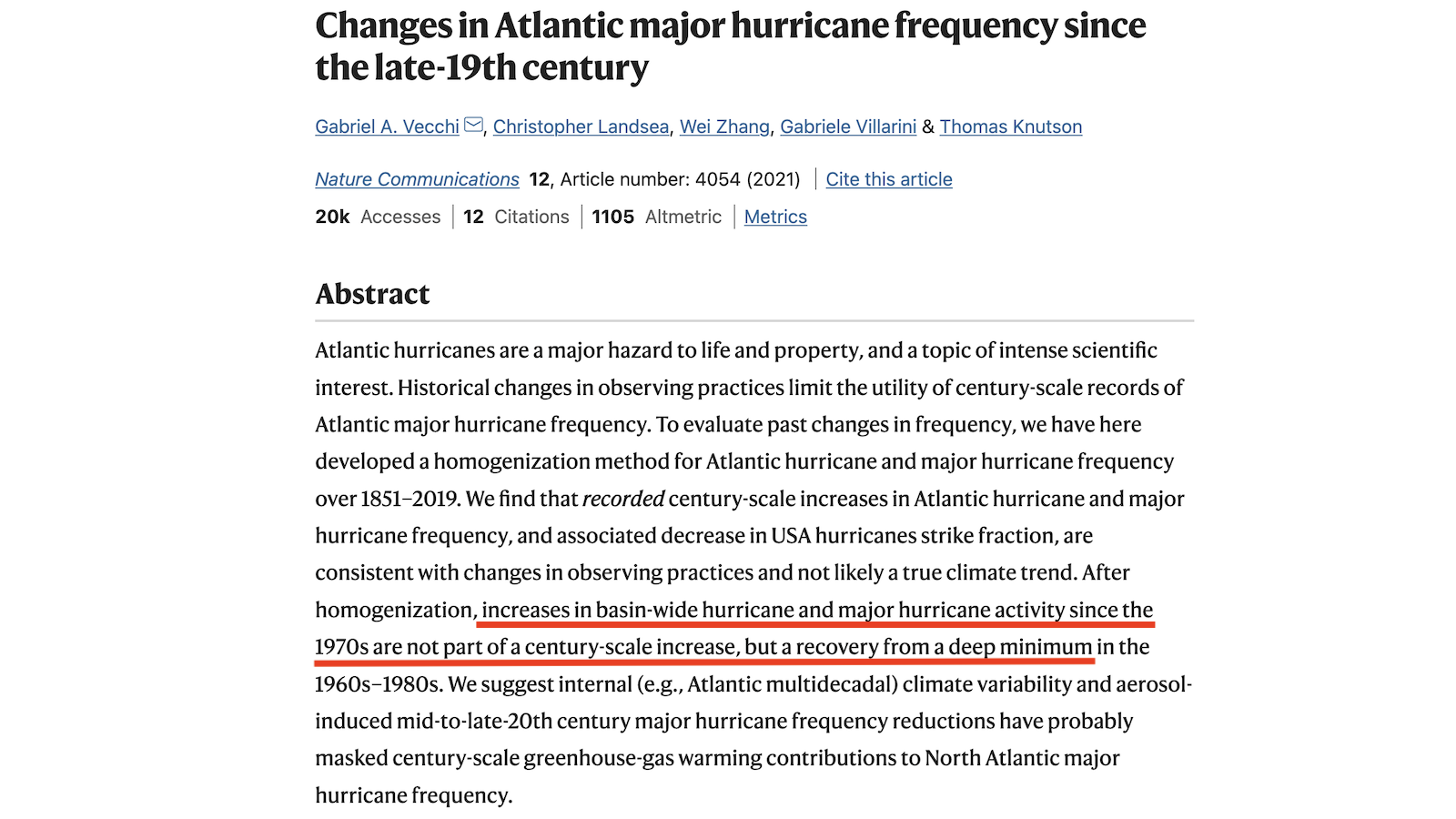
-
Leading media outlets have also deliberately ignored statements by the National Oceanographic and Atmospheric Administration and the Intergovernmental Panel on Climate Change about how any increases in hurricane frequency in records are likely due to increasing reporting, not actual frequency.11
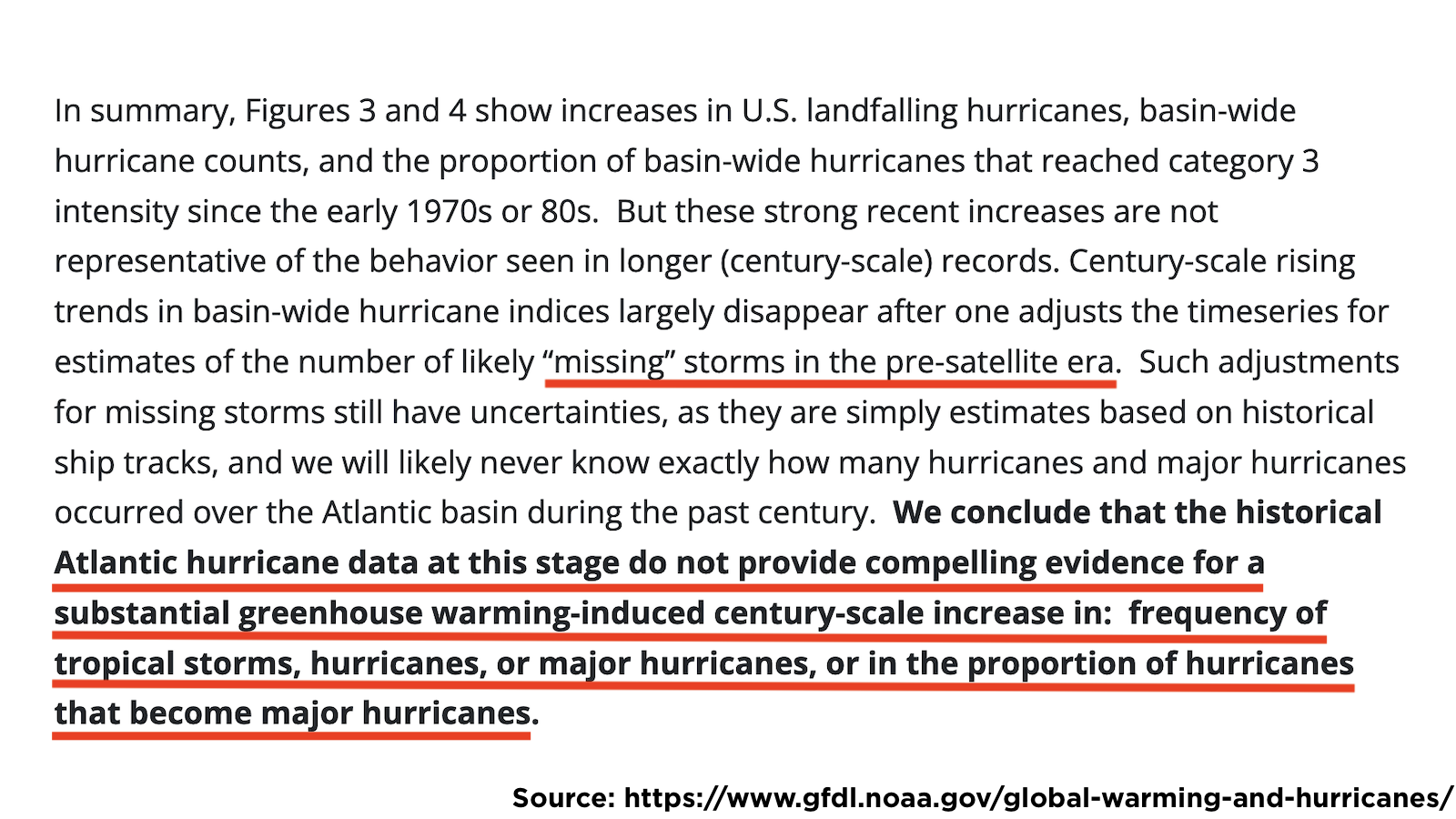
-
Here are recent data on global hurricane frequency and intensity from a 2022 paper (Klotzbach et al). Does this remotely resemble what trusted media sources tell you?12
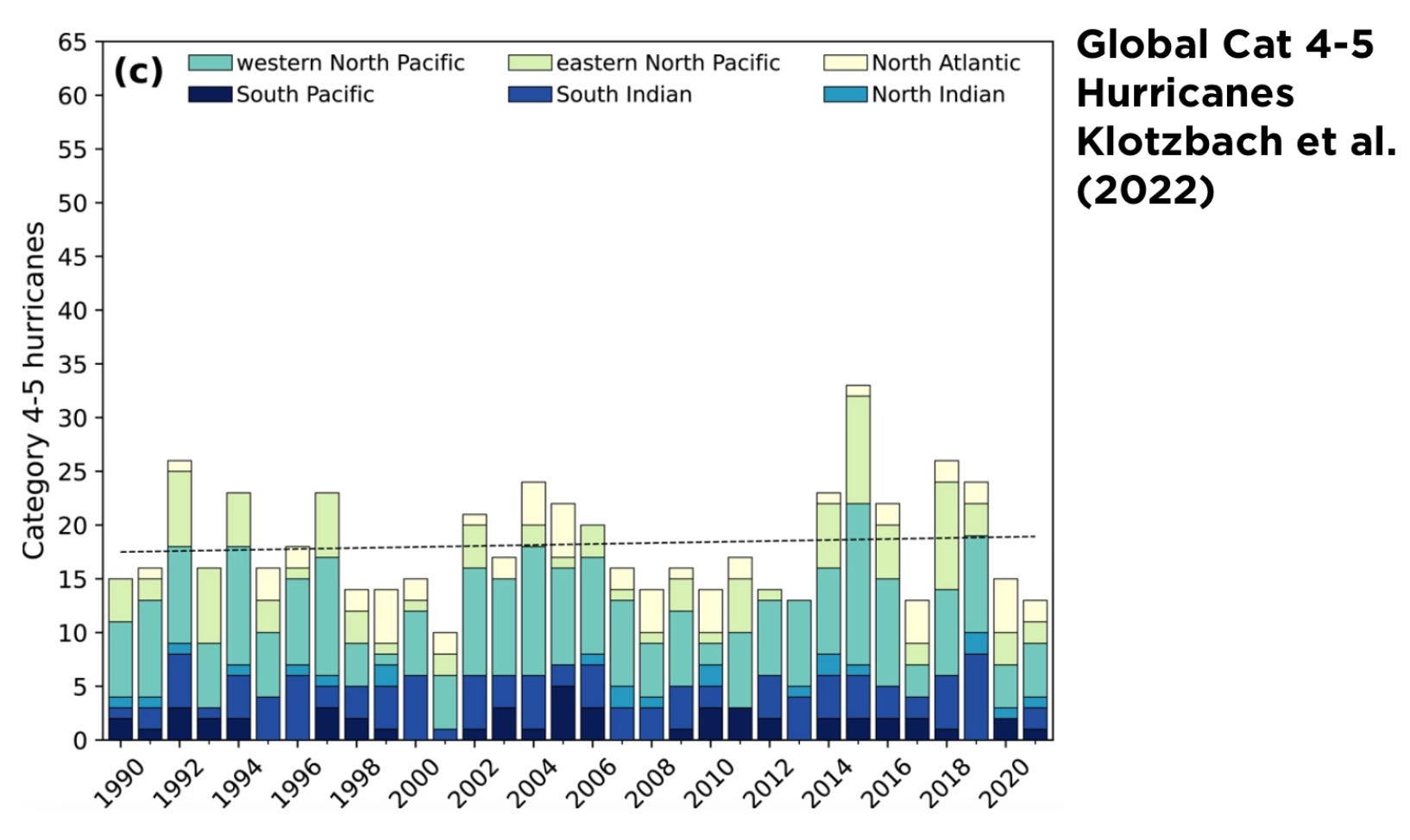
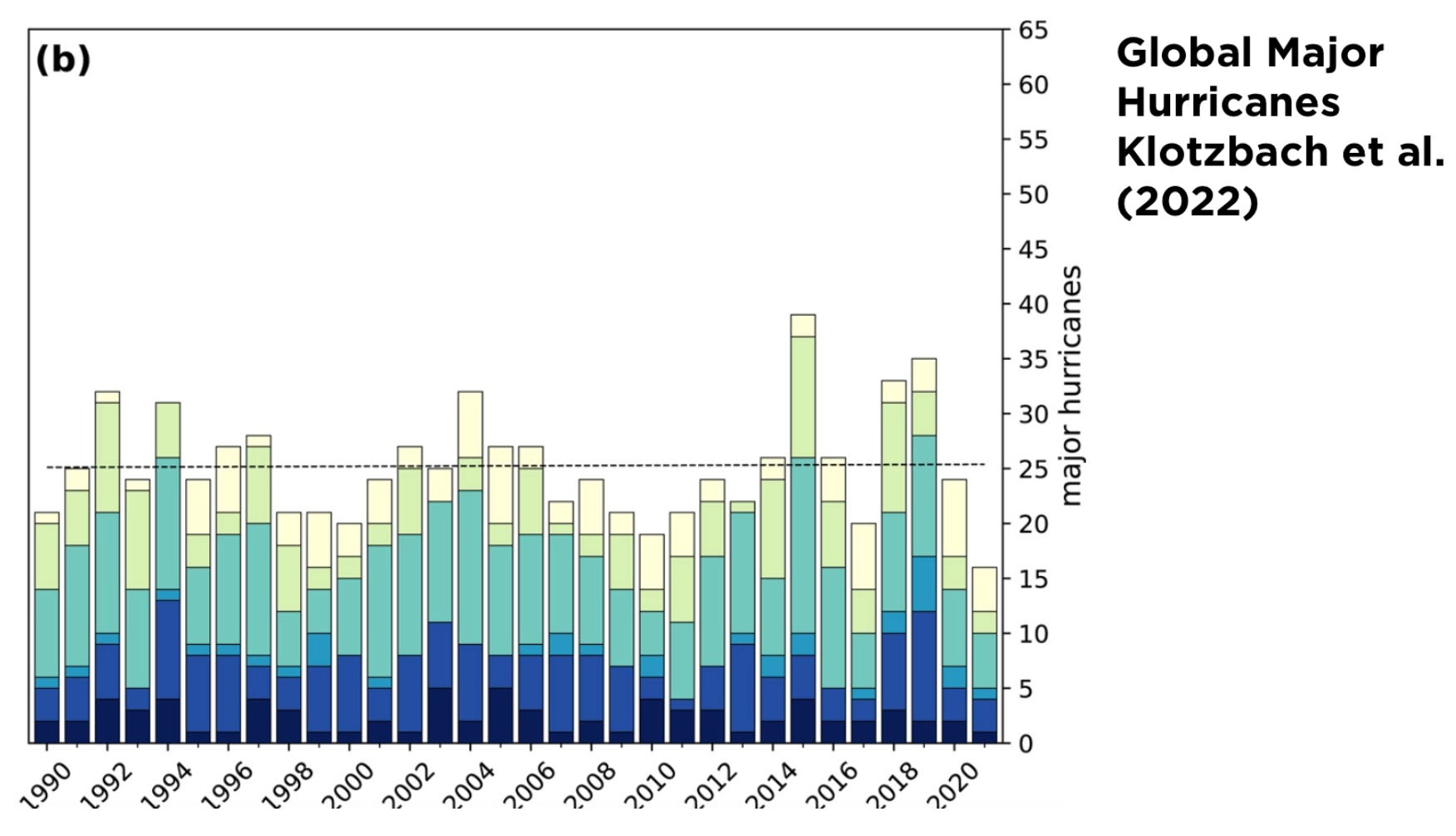
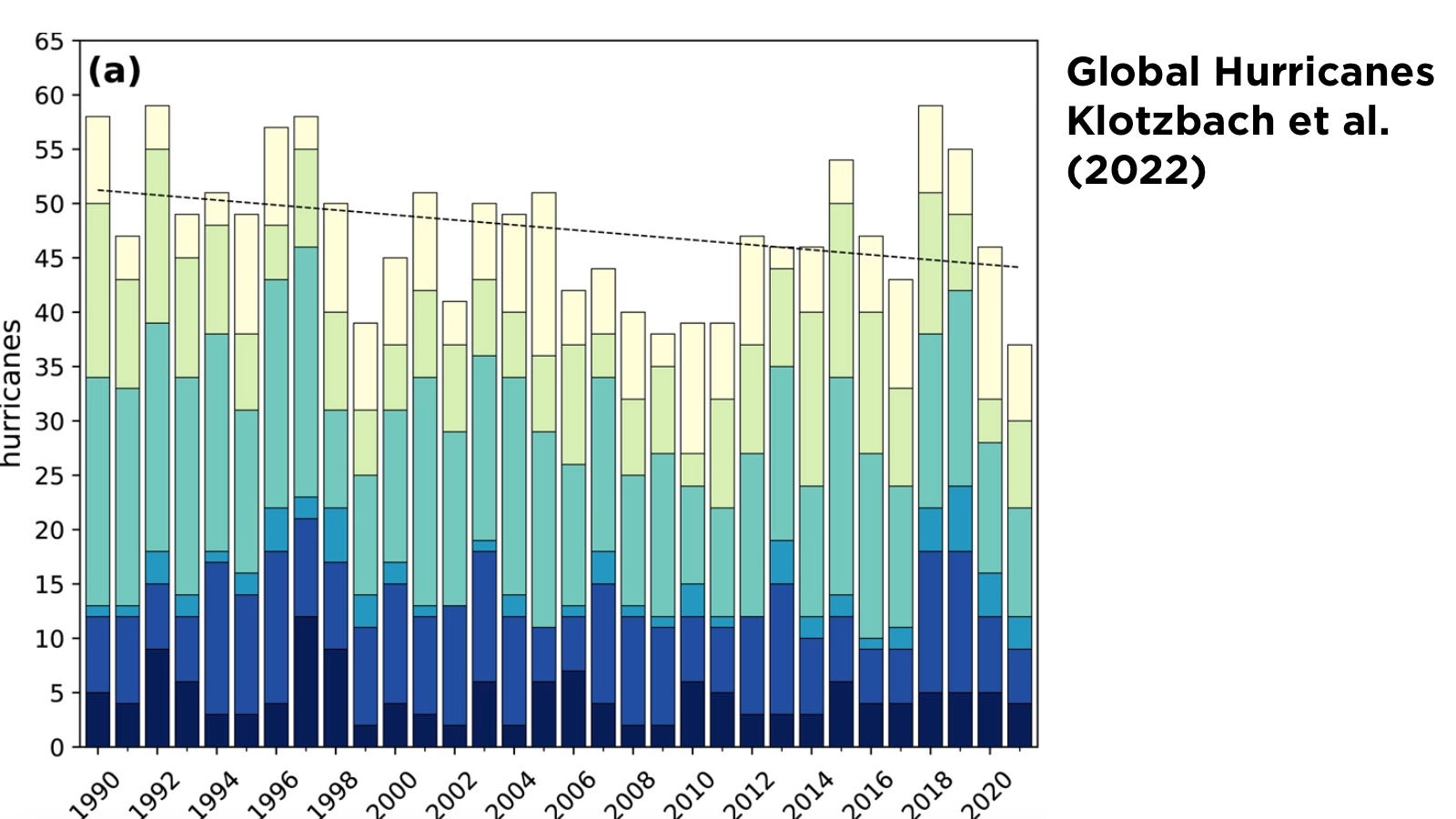
-
Here’s recent US data for landfalling hurricanes, both overall and major. Again, consuming the New York Times and other trusted sources would you have any idea that the data looked like this?13
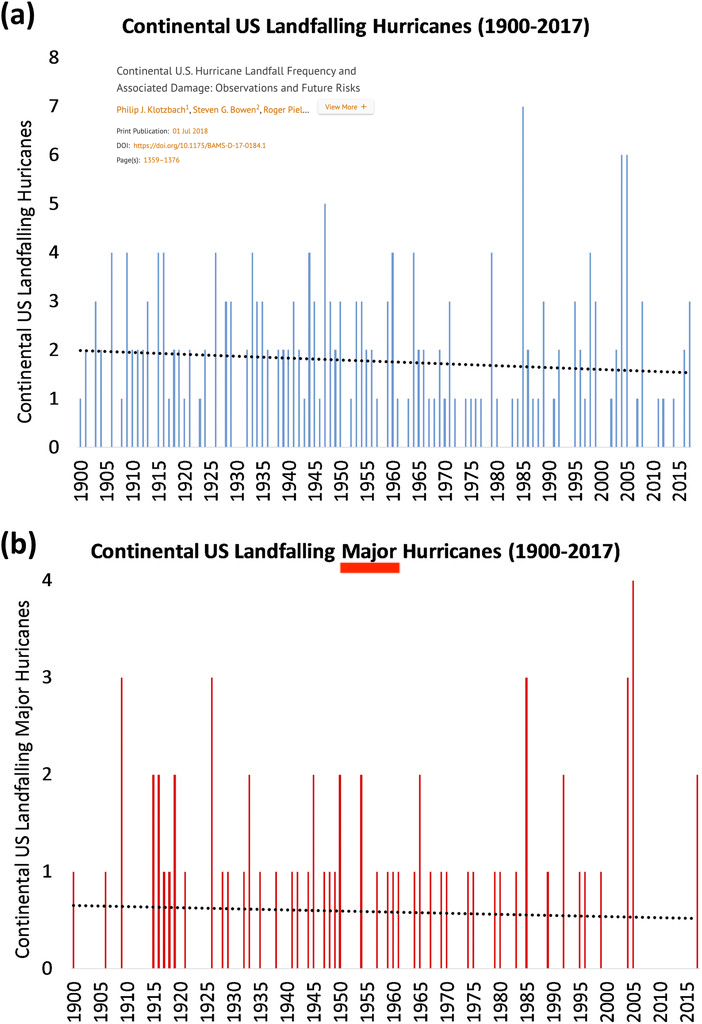
-
Myth: Fossil fuels made Hurricane Milton worse for Florida.
Truth: While we can’t know exactly how Milton was different due to human climate impacts, we know that without fossil fuels Florida would be a 3rd-world place that Milton or even a weaker storm would have devastated.
-
While we can’t know exactly how Milton was different because of human climate impacts, we know that without fossil fuels Florida would be a third-world place that Milton would have utterly devastated.
Truth: Fossil fuels will continue to make us far safer from storms and other extreme weather.
-
Even though we’re clearly safer than ever from extreme weather and have fossil fuels to thank for it, the media pretend that any current safety will change soon because fossil fuels will make storms far worse in the future.
But mainstream climate science shows nothing of the sort.
-
Myth: Fossil fuels are projected to have a significant impact on storms.
Truth: Even the anti-fossil-fuel IPCC estimated in its latest assessment report that a signal of human impact on tropical cyclones will not be detectable this century amid a high natural variability.14
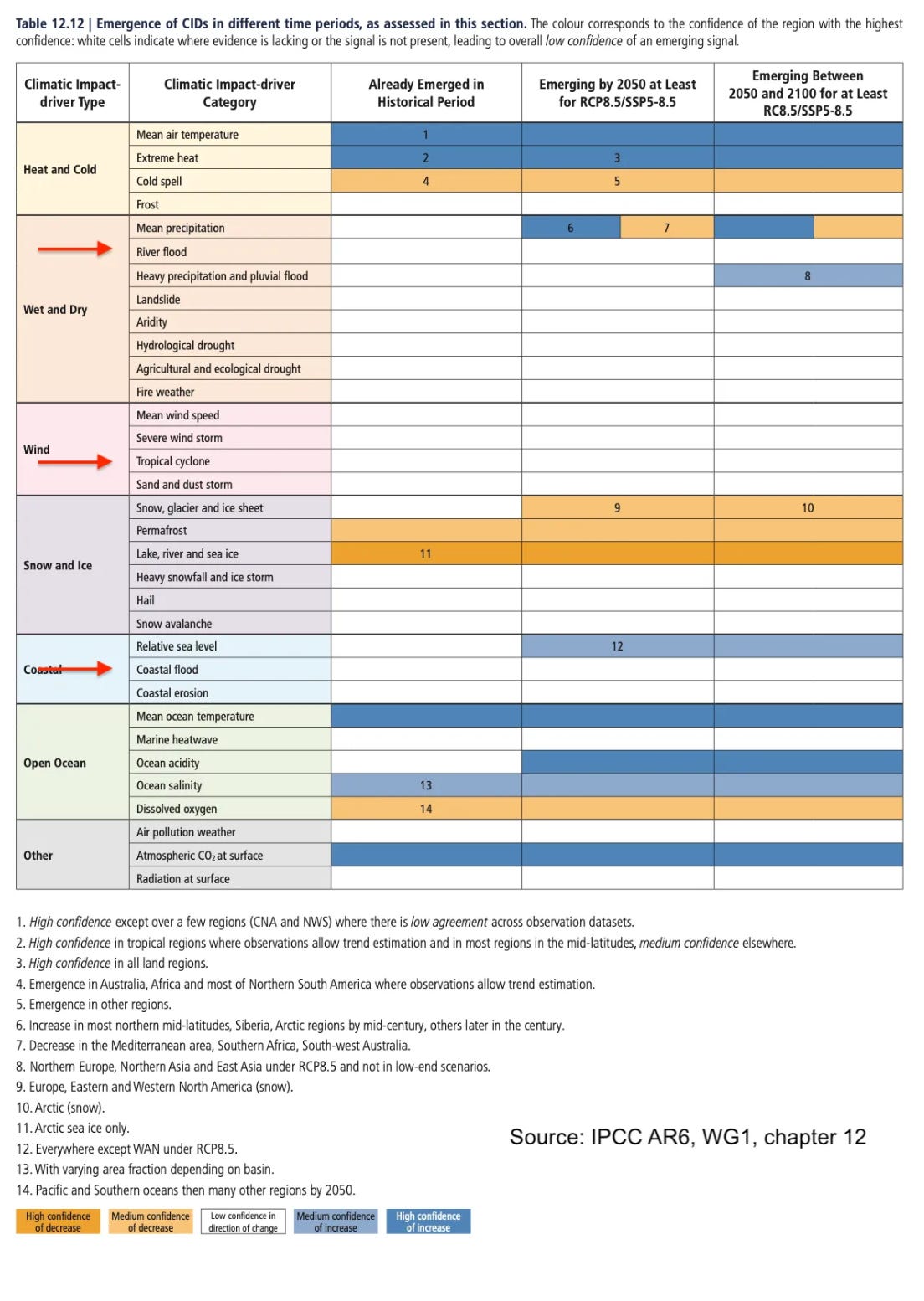
-
Myth: Hurricanes are expected to get more frequent as temperatures rise.
Truth: Mainstream science expects that hurricanes will become less frequent as temperatures rise.15
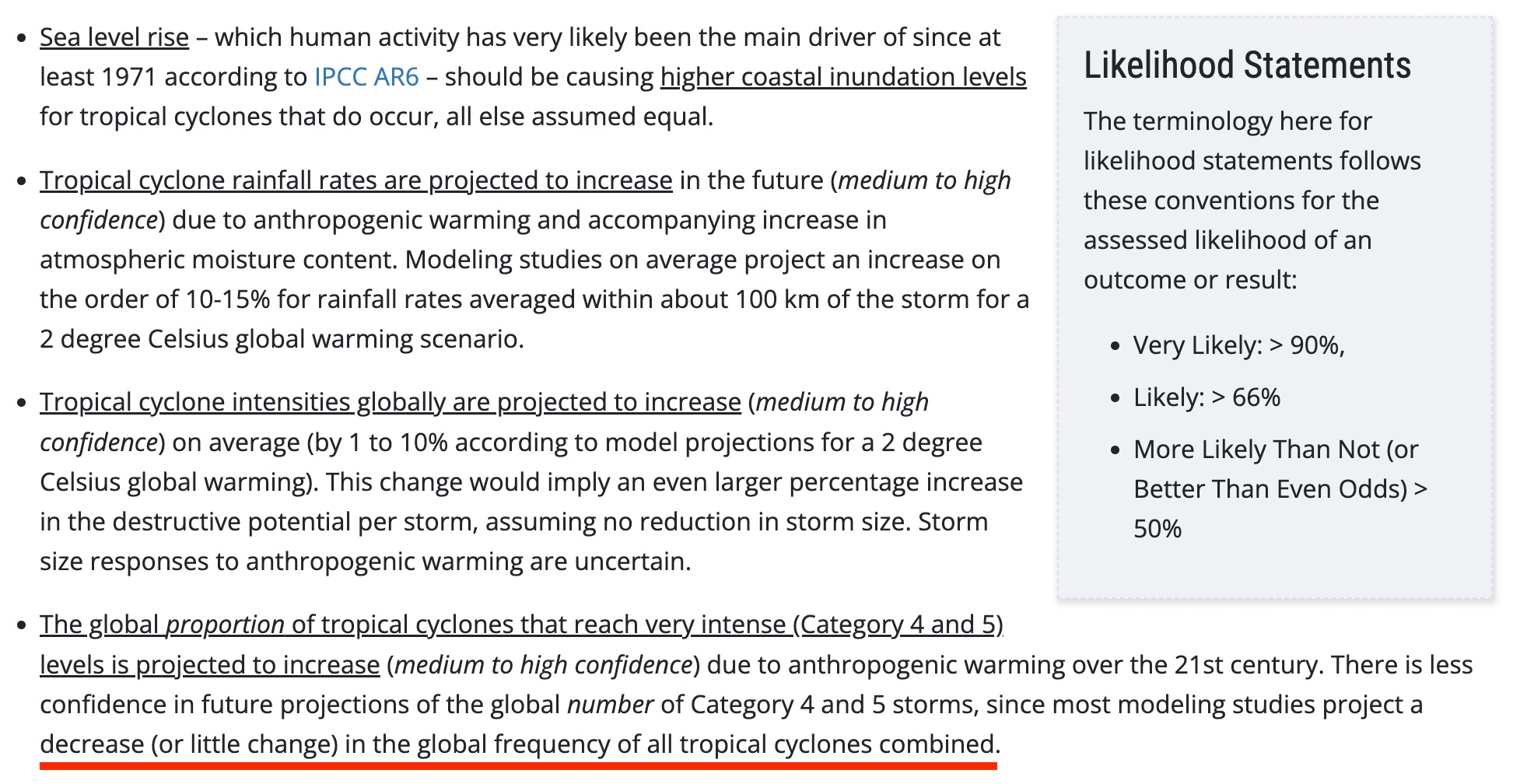
-
Myth: Hurricane intensity is expected to get catastrophically higher as temperatures rise.
Truth: Mainstream estimates say hurricanes will be less frequent and between 1-10% more intense. This is not at all catastrophic if we continue our fossil-fueled climate mastery.16
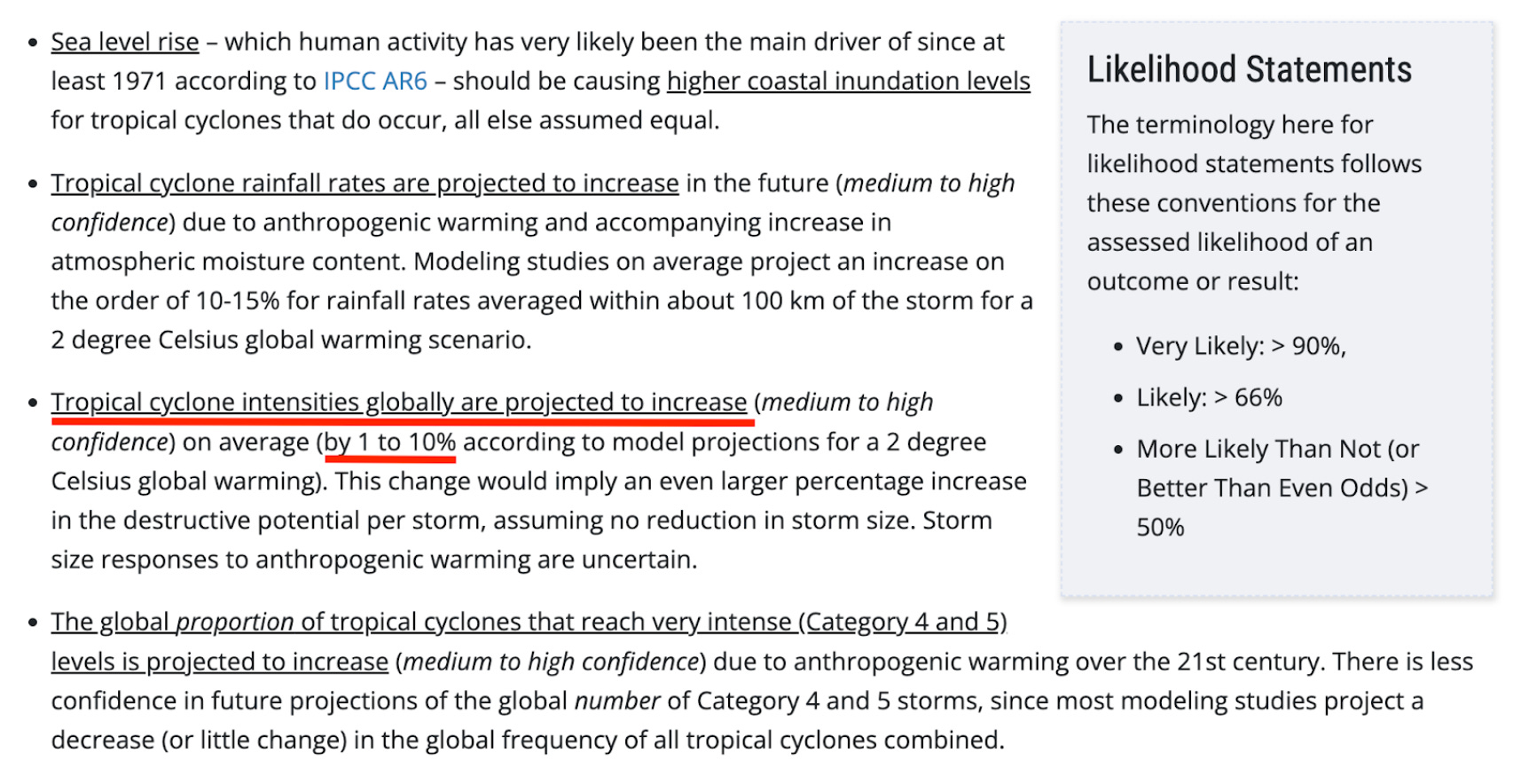
Most public climate communicators fail to think about fossil fuels and extreme weather in a balanced way.
-
Anyone who talks about fossil fuels or “climate change” making extreme weather worse without talking about how fossil fuels make it better does not know how to think about climate safety. Unfortunately this includes most of the media, many climate researchers, and commentators on both sides of the political aisle.
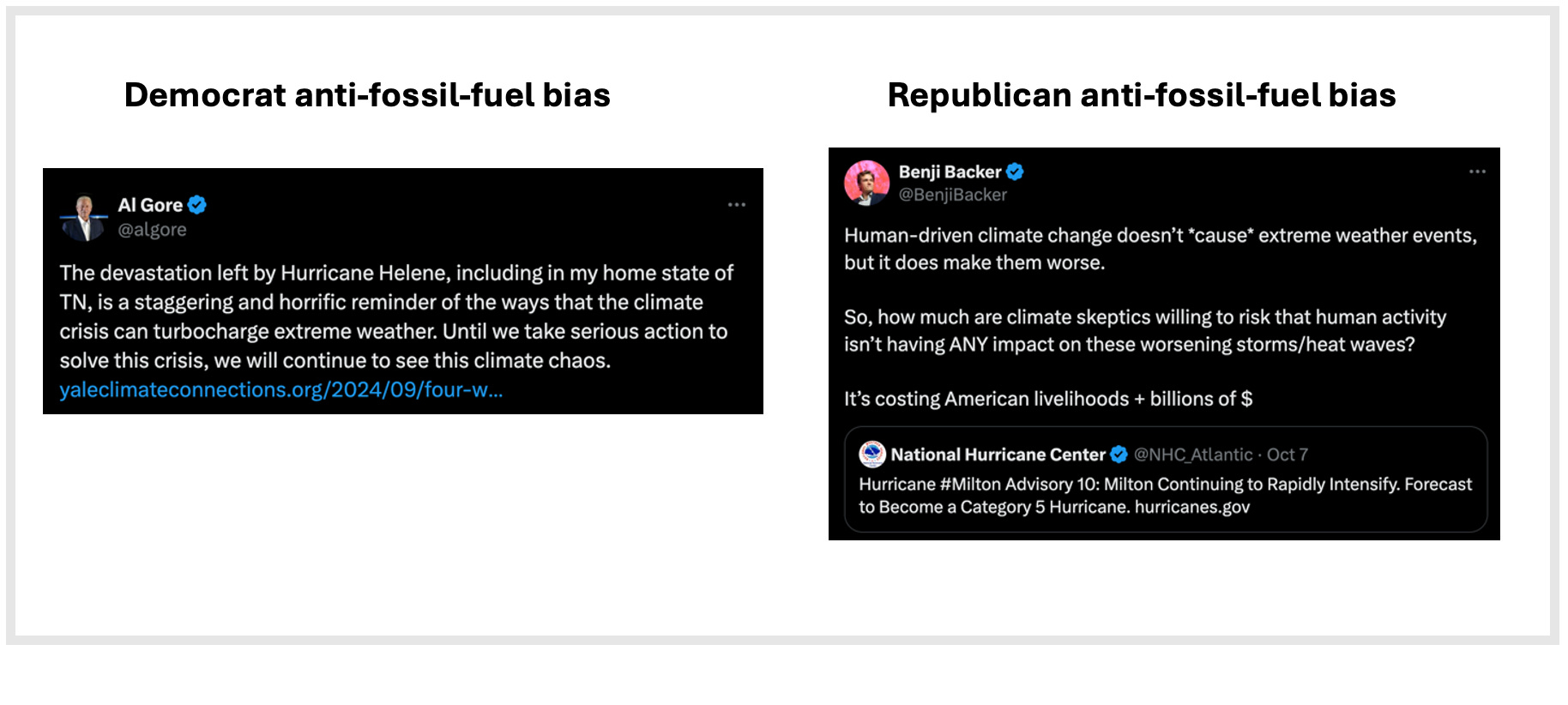
-
Myth: Media-cited research on extreme weather is unbiased.
Truth: Extreme weather research is riddled with biases. In addition to ignoring fossil-fueled climate mastery, many researchers have overtly political motives and ignore positive impacts of fossil fuels on weather.17
-
Myth: Climate researchers have no political bias.
Truth: Certain climate attribution “scientists” admit that they are motivated by political goals and shape their “science” accordingly. E.g., media favorite Friederike Otto wants climate research “on the offensive.”18
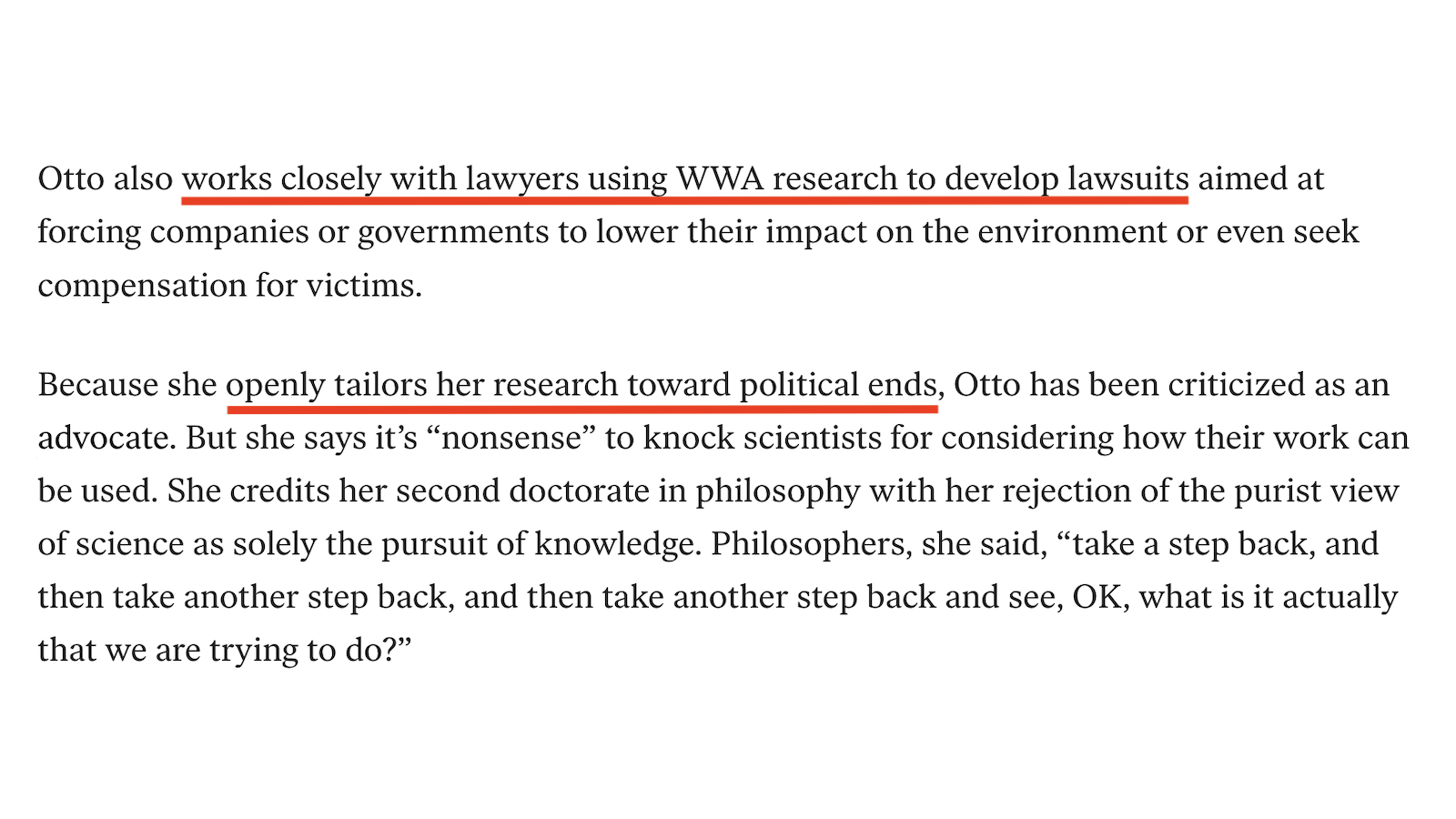
-
Even though there’s no signal of significant fossil fuel impact on hurricanes, the climate catastrophist media and researchers try to still somehow blame fossil fuels for large percentages of hurricane death tolls and damages. Attempts to do so are thoroughly dishonest.
-
Myth: Attributions of X% of an extreme weather event to humans are credible.
Truth: Not only are many attributors clearly biased, but no precise estimate of this kind is possible given today’s climate modeling limits, where mainstream models hugely diverge from one another.19
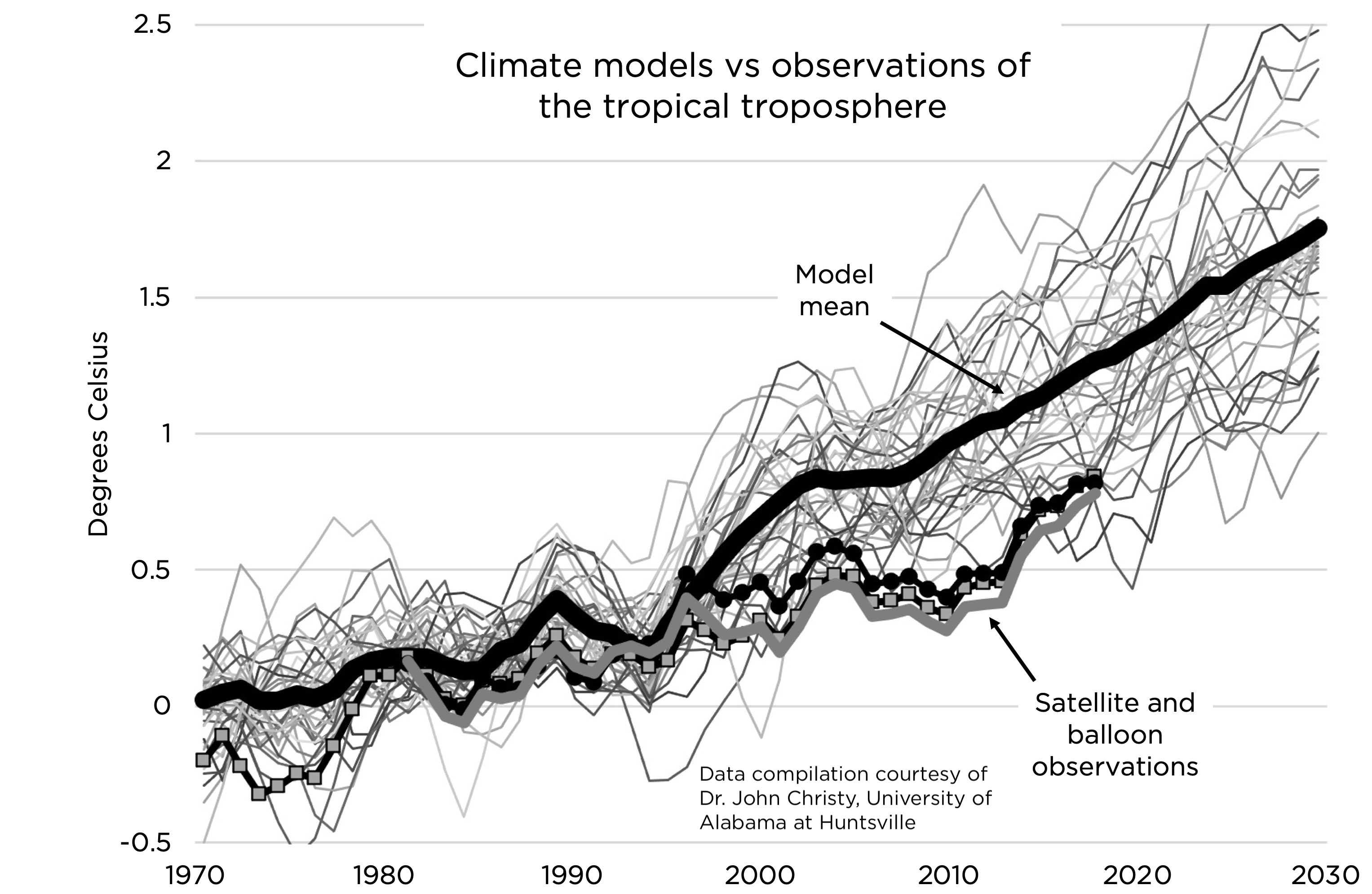
-
Myth: Extreme weather “attribution” researchers are simply trying to understand extreme weather and have found fossil fuels guilty.
Truth: Extreme weather “attribution” only looks for negative impacts of fossil fuels on extreme weather, brazenly ignoring any avoided negative impacts.
-
Note that we don’t know how many hurricanes the US East Coast and other vulnerable spots dodged or will avoid thanks to global warming. Models cannot give us this information and since it’s not a negative, no mainstream and public researcher in the field is looking for ways to find out.
-
Commentators love to claim a scientific connection between hurricanes and climate change because these storms are so impactful and could help their political agenda. But hurricanes are a particularly bad example because empirical science doesn’t show a danger increase so far.20
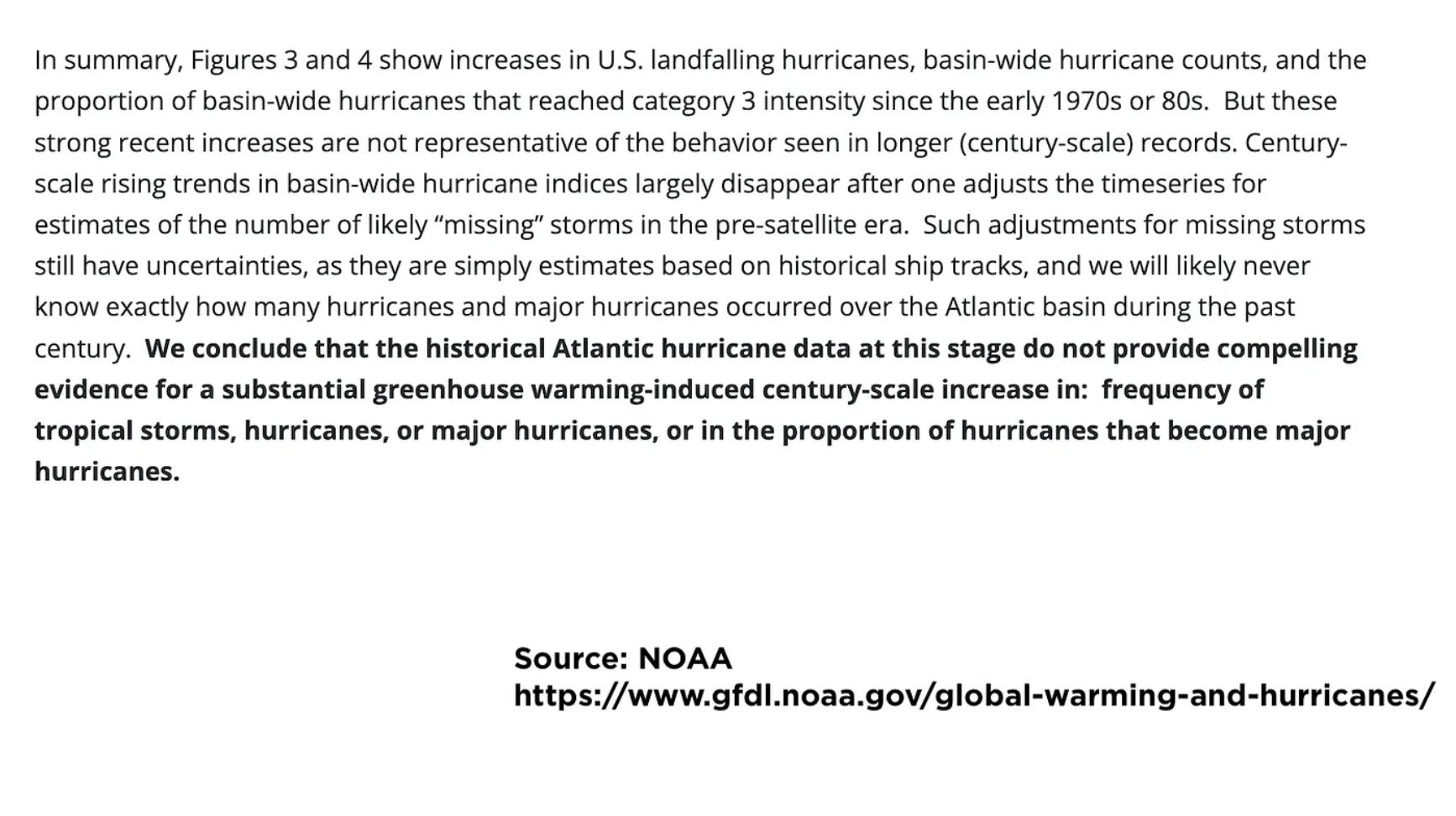
-
One of the few climate researchers who is openly looking at the full impact of fossil fuels on climate, including potential avoided damage, is meteorologist and hurricane expert Dr. Ryan Maue. What are the chances we see his point about avoided hurricanes in the mainstream news?
Ryan Maue on Hurricanes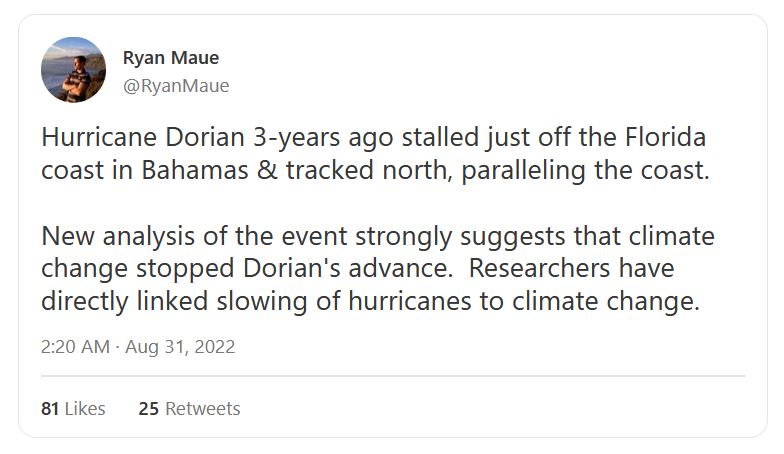
-
Myth: We can expect fossil fuels to make extreme weather far more dangerous in the future.
Truth: Fossil fuels’ climate mastery benefits have far overwhelmed any negative side-effects on extreme weather for 100+ years and there’s every reason to expect this to continue.
-
Myth: Rapidly eliminating fossil fuels will make us safer from extreme weather.
Truth: Fossil fuels provide uniquely cost-effective energy in a world that needs far more energy. Rapidly eliminating them means far less energy, which means climate impotence—and mass death.21
-
While leading scientists say that future hurricanes can become slightly stronger and less frequent, there is little evidence today of strong influence from warming so far. In any case, what we face is a level of danger that we can readily master—if we can use fossil fuels.
-
Myth: When a major storm hits, politicians like Governor Ron DeSantis should commit to anti-fossil-fuel policies.
Truth: That would be pseudoscientific symbolism, and make their constituents poorer and more vulnerable going forward. Like Europe, which now forces deindustrialization.
-
It is absolutely shameful that Governor DeSantis's political opponents are trying to blame him for the damage of Hurricane Milton given that 1) the pro-freedom, pro-energy policies he supports lessened the damage and 2) his focus now is where it should be: hastening recovery.22
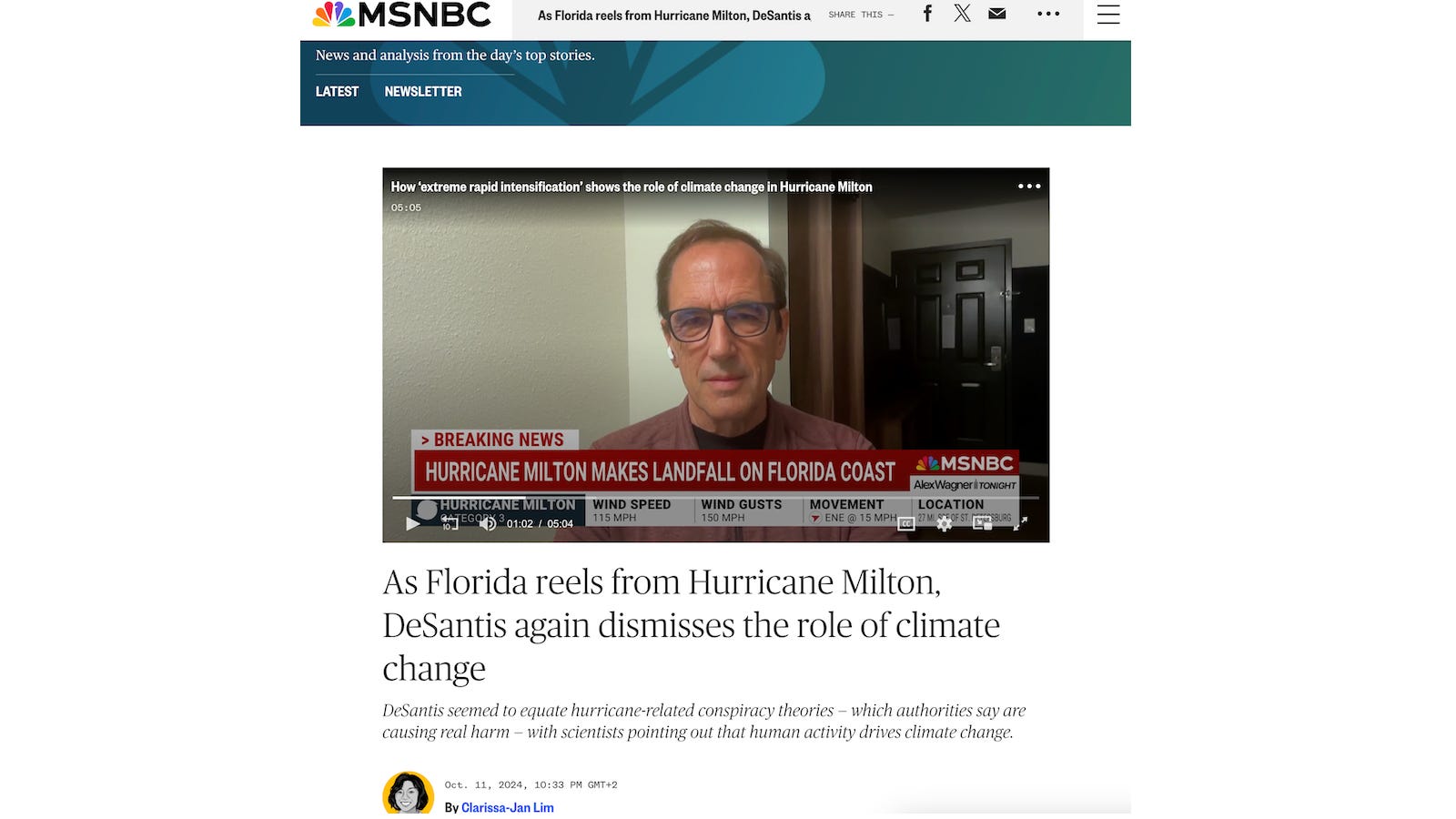
-
Thankfully Governor DeSantis has demonstrated very good climate thinking on hurricane Milton, acknowledging that extreme weather has always been incredibly dangerous, and focusing on the increased safety Floridians are experiencing due to fossil fueled resilience measures.
-
Myth: The next extreme weather event you hear about would have been much better if we had rapidly eliminated fossil fuels.
Truth: We will be far safer from that event thanks to fossil fuels. And we are also alive with our current life expectancy thanks to fossil fuels.
Michelle Hung and Steffen Henne contributed to this piece.
References
-
UC San Diego - The Keeling Curve
For every million people on earth, annual deaths from climate-related causes (extreme temperature, drought, flood, storms, wildfires) declined 98%--from an average of 247 per year during the 1920s to 2.5 per year during the 2010s.
Data on disaster deaths come from EM-DAT, CRED / UCLouvain, Brussels, Belgium – www.emdat.be (D. Guha-Sapir).
Population estimates for the 1920s from the Maddison Database 2010, the Groningen Growth and Development Centre, Faculty of Economics and Business at University of Groningen. For years not shown, population is assumed to have grown at a steady rate.
Population estimates for the 2010s come from World Bank Data.↩
-
Roger Pielke Jr. - Weather and Climate Disaster Losses So Far in 2022, Still Not Getting Worse
Roger Pielke Jr. - Tracking progress on the economic costs of disasters under the indicators of the sustainable development goals↩
-
UC San Diego - The Keeling Curve
For every million people on earth, annual deaths from climate-related causes (extreme temperature, drought, flood, storms, wildfires) declined 98%--from an average of 247 per year during the 1920s to 2.5 per year during the 2010s.
Data on disaster deaths come from EM-DAT, CRED / UCLouvain, Brussels, Belgium – www.emdat.be (D. Guha-Sapir).
Population estimates for the 1920s from the Maddison Database 2010, the Groningen Growth and Development Centre, Faculty of Economics and Business at University of Groningen. For years not shown, population is assumed to have grown at a steady rate.
Population estimates for the 2010s come from World Bank Data.↩
-
UC San Diego - The Keeling Curve
Data on disaster deaths come from EM-DAT, CRED / UCLouvain, Brussels, Belgium – www.emdat.be (D. Guha-Sapir).
Population estimates for the 2010s come from World Bank Data.↩
-
Alberta.ca - Current and Historical Alberta Weather Station Data Viewer
-
UC San Diego - The Keeling Curve
Data on disaster deaths come from EM-DAT, CRED / UCLouvain, Brussels, Belgium – www.emdat.be (D. Guha-Sapir).
Population estimates for the 2010s come from World Bank Data.↩
-
New York Time - Ian Moves North
Vecchi et al. (2021) - Changes in Atlantic major hurricane frequency since the late-19th century↩
-
Klotzbach et al. (2022) - Trends in Global Tropical Cyclone Activity: 1990–2021↩
-
Klotzbach et al. (2018) - Continental U.S. Hurricane Landfall Frequency and Associated Damage: Observations and Future Risks↩
-
Politico - The climatologist who put climate science ‘on the offensive’↩
-
Climate Etc. - New Confirmation that Climate Models Overstate Atmospheric Warming
Ross McKitrick - On the choice of TLS versus OLS in climate signal detection regression
Dr. Roy Spencer - Hot Summer Epic Fail: New Climate Models Exaggerate Midwest Warming by 6X↩
-
MSNBC - As Florida reels from Hurricane Milton, DeSantis again dismisses the role of climate change↩
